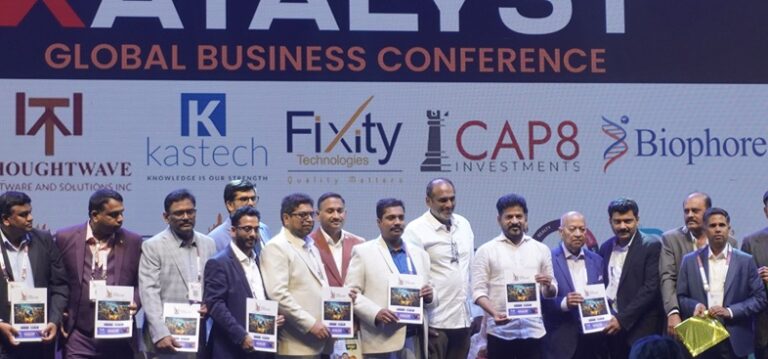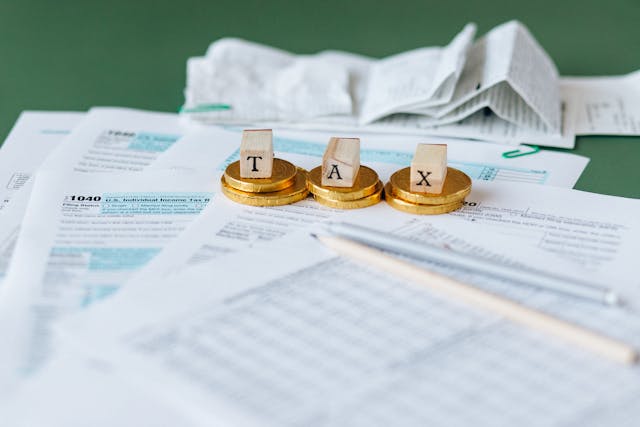Finance Minister Nirmala Sitharaman is likely to present the 2024-25 Budget on July 24, with the Economic Survey preceding it on July 23. The real estate sector anticipates reforms such as increased tax deductions for home loans, reduced GST on under-construction properties, and adjustments to raw material pricing. The civil aviation industry seeks tax rationalization and the inclusion of aviation turbine fuel under GST.
The government may raise the Section 80C limit in the old income tax regime but significant relief is unlikely, as the focus is on promoting the new tax regime. Sitharaman faces the challenge of balancing economic growth, inflation control, and fiscal consolidation while addressing the demands of key political allies.
Comments
Mr Udit Garg, CEO & Director, Kundan Green Energy.
“As India enters the next phase of its growth trajectory, its energy demand set to grow exponentially – about 335 GW by 2029-’30. The fact that demand for energy is outstripping supply can be gauged by the plant load factor of thermal plants. This measure of capacity utilization went up from 71% last year to 76% in January 2024. The coal fired energy addition has been set very high at 80 GWs (claimed by Government as under construction) because there is unsatisfactory renewable energy generation. While tenders have exceeded targets in green energy, we have a long way to go —- we must add about 40 GWs annually in green energy until 2030 while we are clocking a mere 10 GWs per year. We should see this in the sharp paradoxical juxtaposition of the fact that India is committed to nett zero by 2070, is accelerating thermal power generation, has slow and below target renewable energy addition and is increasing its energy demand rapidly. Clearly, the answer lies in disproportionately increasing green energy generation. The sector must see exponential increase in investments. I hope the forthcoming Union Budget would facilitate the ecosystem for this. With a robust investment inflow enabled by policy stimulus, the sector can add 50-60 GW annually from the present 10 GWs to 15 GWs. Higher loan capital is vital for this. With financial infrastructure, and a streamlining of land acquisition, I am confident of incremental market depth and scope which has a direct bearing on the sector. Besides this, an often overlooked area which we should consider is dedicated transmission corridors along the lies of the Green Energy Corridor (GEC) for renewable power evacuation. This will go a long way in addressing power evacuation issues faced by hydropower developers, especially in the northeast.
While there are several suggestions for the Government to consider, these are amongst the most topical.”
Tarun Chugh, MD & CEO, Bajaj Allianz Life Insurance.
“Over the past decade, India has achieved remarkable economic growth, with GDP consistently exceeding 6% and surpassing many global economies. As we approach this budget, we anticipate measures that will sustain and simultaneously accelerate this long-term growth, benefiting individuals and businesses alike, with a strong emphasis on job creation. Addressing inflation is crucial for securing a robust financial future for individuals, as it will enable them to have more money in hand, towards savings and investments for their long-term goals and financial security.
With increased earning power and disposable income, Indian citizens will be able to invest in versatile life insurance products for their peace of mind and financial goals. Given the under penetration of life insurance in the country, there is substantial room for sectoral growth.As an industry, some of our budget expectations from the finance ministry is to consider lower GST on life insurance products. Additionally, in the pension products category, with the objective of securing post-retirement financial needs of the individuals, we urge the government to align life insurance annuity or pension products with the National Pension Scheme (NPS) and allow the similar additional deduction of Rs. 50,000 or more for life insurance annuity or pension products under Income Tax.We also request the ministry to introduce Long Term Capital Gain taxability for all high value traditional life insurance plans (more than Rs.5 lakhs aggregate annual premium), in line with high value ULIPs. This will bring in uniformity and tax efficiency for insurance customers at par with other similar financial products in the market.”
Amit Lakhotia, Founder & CEO, Park+
“Indian cities are evolving at a rapid rate- mass migration, infrastructure upgrades, increase in vehicular ownership penetration and our pursuit to build 100 smart cities by 2024 has been a game changer. Having said that, for India to truly build smart cities, it is imperative that we also embed smart vehicular management systems within the current urban architecture. With over 45cr+ vehicles (4W, 3W ,2W) on Indian roads today, we need to ensure that real estate players, auto-tech startups, OEMs, local municipalities, and government bodies, work together to offer services to make Indian roads smart and safe. All stakeholders need to work together to provide safe/legal parking spots, unclog gridlocks, combat monsoon triggered flooding, create smart traffic management systems, build EV charging stations, ensure better driving behavior, and reduce road accidents. I look forward to seeing the government promoting polices & launching initiatives to build smart cities of the future, which are safer, smarter and livable.”
Mr. Kush, CEO of Essar Power.
“As India continues its journey towards a future of net-zero emissions, we commend the government’s forward-thinking approach to sustainability and applaud its ambitious green objectives. Furthermore, we appreciate the government’s strategy to reduce carbon emissions while ensuring a reliable base load through thermal power plants. Promoting technologies like Advanced Ultra Super Critical (AUSC) power plants underscores this commitment, offering reduced carbon footprints compared to traditional plants.
As we approach the Union Budget 2024, we anticipate strategic initiatives that will drive growth and sustainability. We hope to see significant allocations towards renewable energy projects, enhanced grid infrastructure, and innovative technologies. Additionally, policy reforms aimed at reducing regulatory bottlenecks and promoting private investment will be crucial. These measures will not only help in meeting the growing energy demands but also in achieving the nation’s ambitious targets for a greener and more resilient energy future.”
Mr. Pankaj Kalra, CEO of Essar Oil & Gas Exploration & Production Ltd (EOGEPL).
“With economic activities on the rise and considering the geo-political scenario, the demand for Oil & Gas is expected to remain stronger for longer. As the country has plans to raise share of gas in energy mix to 15%, we foresee that the upcoming Union Budget prioritize policy frameworks and measures for the Oil and Gas sector. Addressing the tax structure in this sector is imperative as natural gas, crude oil, and other petroleum products remain outside the GST ambit, leading to an increasing demand for their inclusion in the GST regime. The government’s policy reforms can significantly strengthen the energy sector and ensure stability amidst volatile global crude markets. We aim this upcoming budget will focus on growth, collaboration between industry stakeholders and policymakers will be crucial ones for incessant development.”
Mr. Anand Mimani, CEO of Greenline Mobility Solutions
“LNG has a key role to play in India’s energy mix as the country aims to walk the line between growth and sustainability. Its potential as a bridge fuel in India’s energy transition can only be realised with creation of virtual pipelines. Our expectations from the budget would be to create an ecosystem conducive to the setting up of such virtual pipelines. At the same time we call for greater focus on implementing the reforms enacted to promote natural gas use and call for natural gas to be given infrastructure status so that we can maintain our rapid pace of economic growth without compromising progress on our sustainability goals.”




+ There are no comments
Add yours